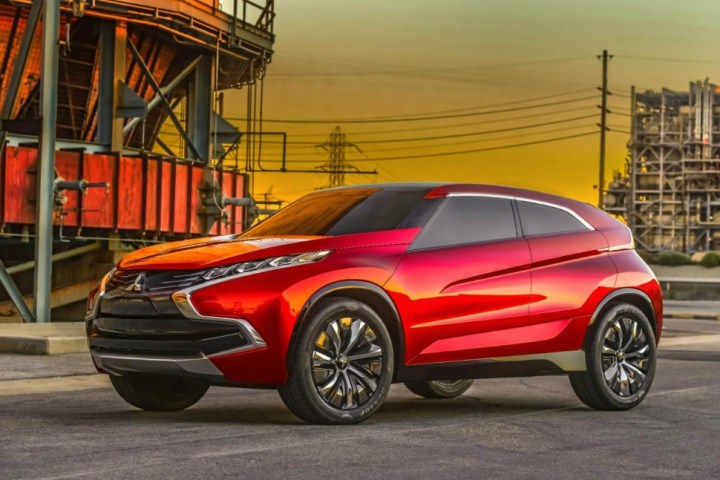
New models already confirmed for the show include the production version of the Land Rover Range Rover Evoque Convertible, the 2016 Nissan Sentra, and a redesigned Buick LaCrosse. Mitsubishi will also debut two models: the next-generation Outlander Sport (expected to borrow styling from the XR-PHEV concepts), and the refreshed 2017 Mirage minicar.
In addition, Infiniti will unveil its QX30, a crossover based on the Q30 hatchback that debuted at the 2015 Frankfurt Motor Show and the second product of parent Renault-Nissan’s partnership with Mercedes-Benz. Porsche will also debut the Cayman GT4Clubsport, a racing version of the hardcore Cayman GT4 road car.
Some models that were previously unveiled elsewhere will also be making their North American debuts in L.A. The 2017 Hyundai Elantra has already been glimpsed in its home market of South Korea badged as the Avante, while the Jaguar F-Pace and Kia Sportage crossovers both appeared in Frankfurt.
Several other carmakers, including Elio Motors, Fiat, Ford, Mazda, Mercedes, Subaru, Volvo, and Volkswagen are keeping their auto-show plans under wraps for now, and Alfa Romeo, Audi, BMW, and MINI have North American debuts planned as well. There will likely be a handful of concept cars too, although the only ones confirmed so far come from Scion, which says it will preview a new design direction, and Volvo, which calls its concept a “time machine.”
There will also be several announcements about “alternative fuel strategies, technology partnerships, new product releases,” and other tech news, organizers say. Companies expected to make tech announcements include Volvo, Hyundai, Quanergy Systems, OpenCar, and KMG. The L.A. Auto Show will also host a Connected Car Expo before the main press days for the third year in a row.
New production and concept car debuts will take place during press days, on November 18 and 19. The L.A. Auto Show has the full schedule, and we’ll have full coverage of everything new and noteworthy, so be sure to check back here.
Editors' Recommendations
- New York International Auto Show canceled for 2020
- 2019 LA Auto Show: Highlights, headlines, and everything awesome
- 2020 Audi E-Tron Sportback, RS Q8 confirmed for 2019 LA Auto Show
- Everything to get excited about at 2019 LA Auto Show
- Stylish and compact, Hyundai’s next concept is tailor-made for Los Angeles


